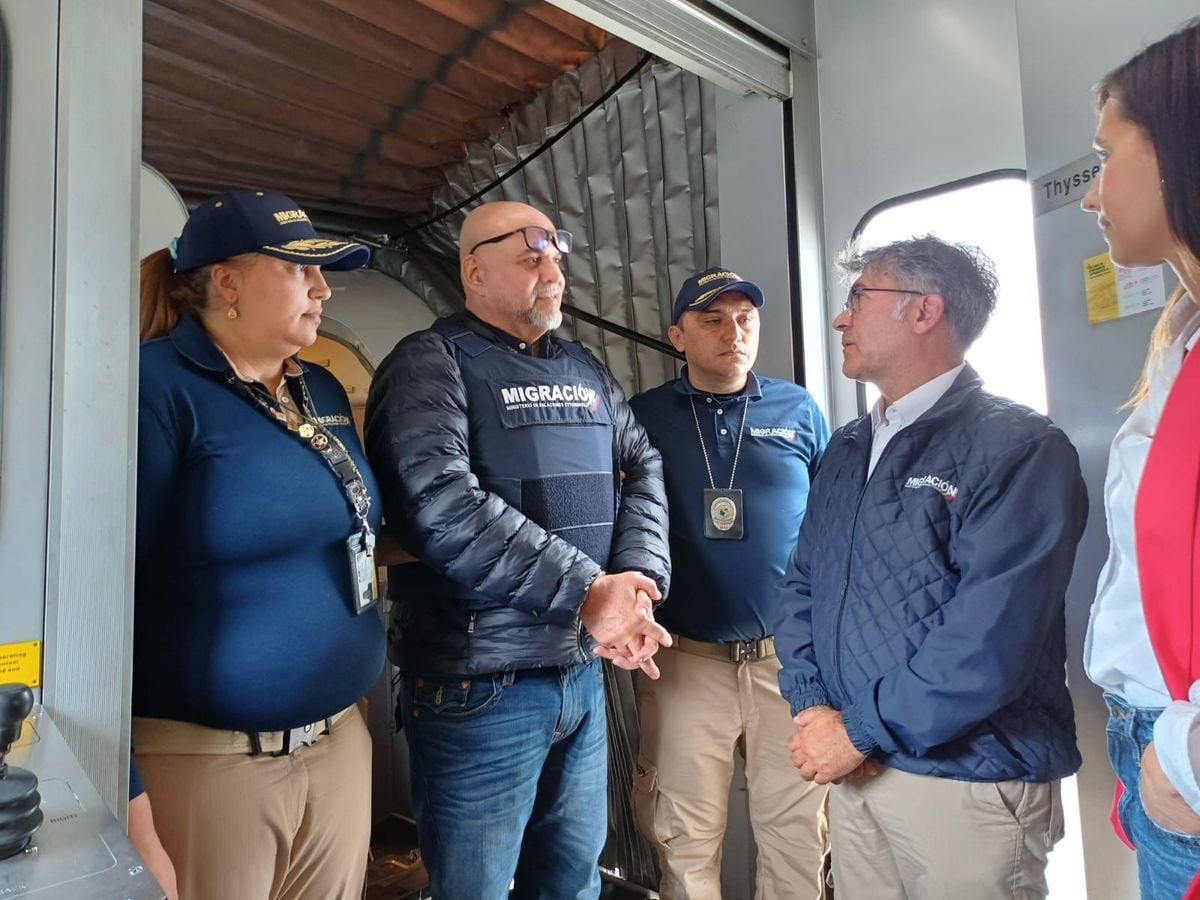Salvatore Mancuso, a feared former paramilitary commander who President Gustavo Petro has appointed as peace manager, landed this Tuesday in Colombia after 15 years in the United States, where he served a sentence for drug trafficking.
He returns to his country of origin to also face ordinary and transitional justice, in which he has been accused of much more than drug trafficking: acts of terrorism, conspiracy to commit crimes, homicides, torture, kidnappings, massacres, forced displacements, disappearances, threats , extortion, money laundering, among many crimes.
His freedom in Colombian territory will depend not only on his willingness to contribute to the truth of the armed conflict, in the courts and before society, but on how many legal challenges are resolved.
His defense says that Mancuso has already served his sentence and should be released while other judicial processes are resolved.
The courts, for their part, will have to agree on how to resolve the thousands of criminal acts, not yet investigated, that point to Mancuso.
The former paramilitary commander has landed above all in a judicial labyrinth.
Mancuso joined paramilitary groups in the 1990s and demobilized in 2004 with hundreds of his companions to benefit from a special justice process promoted by the Government of Álvaro Uribe.
In 2005, the former president managed to approve the so-called Justice and Peace Law, in which the paramilitaries received lower sentences in exchange for the truth they offered to the victims.
Mancuso took advantage of this transitional justice system in 2006. But when the paramilitaries' free versions began to reveal the truth of the war, the former commander began to be an uncomfortable figure for Uribe and other powerful people: he accused the former president of being involved in a murder and a massacre, to the military to give lists to kill civilians, to several companies to finance the bloodthirsty army that was the paramilitaries.
The Uribe Government decided to extradite him to the United States in 2008, along with other former paramilitary leaders, arguing that they continued committing crimes from prison.
For many human rights defenders it was more of an effort by the Government to silence them.
Mancuso lived through what was Pablo Escobar's nightmare, a prison in the United States, and was sentenced to 15 years in prison for drug trafficking.
The North American Prosecutor's Office said that the paramilitary leader “directed the manufacture and shipment of more than 100,000 kilograms of cocaine to the United States and other places.”
From a distance, Justice and Peace continued working, and Mancuso continued giving his free versions.
In 2014 he was convicted in two instances in Colombia, by Justice and Peace courts, for more than 2,000 criminal acts committed in eight departments of the country.
A sentence that in ordinary justice would have been 40 years in prison, turned out to be only eight in that special regime.
And those eight years, which legally began to run in 2006, when he applied for Justice and Peace, he spent in United States prisons.
Mancuso speaks with the authorities upon his arrival in Colombia. Migration Colombia
Since 2014, the rancher turned paramilitary has had another process open in the ordinary justice system, for money laundering, which the Prosecutor's Office says he committed after his demobilization in 2004. Even if he were acquitted in this process, it is in Justice and Peace where he has most pending: he has been accused of more than 60,000 criminal acts.
In this transitional justice, the paramilitaries not only respond for the crimes they committed directly, but also for those they would be responsible for through the line of command.
The two convictions from 2014 only cover about 2,500 of those crimes.
That is, he needs to face 96% of the facts.
In addition to ordinary justice and special justice for paramilitaries, the Special Jurisdiction for Peace (JEP), the special court that was born in 2016 from the peace agreements between the Government and the FARC guerrilla, also has space for Mancuso. .
In November of last year he agreed to welcome him into his jurisdiction, arguing that the paramilitary chief was a “hinge” between the paramilitaries and the high command of the public force.
Mancuso promised to give the JEP the entire truth about how the public force operated with the help of paramilitary groups, in exchange for having legal benefits.
The JEP accepted his nomination after four days in which Mancuso spoke before that court, from the United States, about his alliances with the military, businessmen or politicians.
The magistrates considered that he is “willing to dignify the victims.”
But, aware of the legal mess that this represents, the JEP resolved that an interjurisdictional technical table will be needed between that jurisdiction and Justice and Peace, so that they act as complementary justice systems, with the presence of the Supreme Court of Justice and the Attorney's Office
The first thing that Justice will have to resolve is whether Mancuso can be free: the former paramilitary has argued that he has already completed the eight years of sentence that Justice and Peace gave him, when he was locked up in the United States, and that he can face the other processes in freedom.
Salvatore Mancuso's legal future seems like an endless labyrinth, which should not be surprising considering that he was one of the most bloodthirsty paramilitary leaders for a decade and a half.
But he returns to Colombia with a great point in his favor: President Gustavo Petro, who considers that the confessed criminal is essential to knowing the whole truth about the paramilitaries.
Mancuso will have to show that not only does he have a lot to say, but also how to prove it.
Subscribe here
to the EL PAÍS newsletter about Colombia and
here to the WhatsApp channel
, and receive all the key information on current events in the country.

